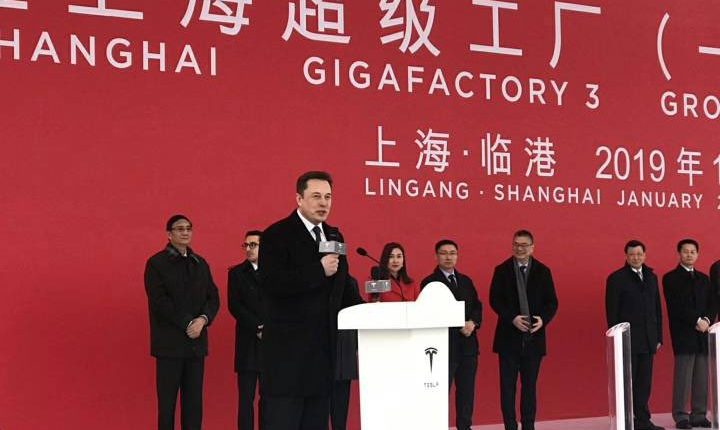Tesla posted yet another profitable quarter, a signal towards how fast the company has achieved a sense of stability with its business. The company reported $5.1 billion in overall revenue, posting yet another profitable quarter amid the heaviest economic crisis the world has seen, probably in modern human history. The announcement caused Tesla’s shares to skyrocket after they took a dive in March, reaching $871 in extended trade, a growth of 8.8%.
The company started this year with a goal of 500,000 deliveries by the end of it, a forecast that it has not updated yet. Production at Tesla’s Shanghai gigafactory, the home of Model 3 cars in the country, took a hit very early in the quarter. However, things seem to be returning back to normal in the region. The company even went as far as to say that production at the facility is progressing better than expected, with production rate of Model 3 sedan expected to hit 4,000 units per week, or 200,000 per year, by mid-2020.
Despite those profits though, Tesla could well be in unwanted trouble, once again due to CEO Elon Musk’s tweet storm. Musk on Tuesday, started bashing US Government’s lockdown measures, going to the extent of calling it undemocratic and ‘fascist’ later in the earnings call. The eccentric “mad scientist turned rich”-Elon Musk tweeted about “Giving people their freedom back” and “FREE AMERICA NOW”, condoning the opening of lockdowns across states. He also retweeted an article about restaurants, retailer and other businesses opening up in Texas, where he said “Bravo Texas”.
Moreover, he tweeted “Agreed” to a user’s tweet, which read: “The scariest thing about this pandemic is not the virus itself, it’s seeing how American so easily bow down & give up their blood bought freedom to corrupt politicians who promise them safety.”
All of this, coming at a time where people in certain regions of the country are protesting lockdown, getting down on streets to gather in large crowds, could be deemed as not just careless, but downright harmful. While he did say that reopening should be done with “care & appropriate protection’, he went on to add “don’t put everyone under de facto house arrest” in classic Elon Musk style.
Twitter came out and said Elon’s tweets don’t go against its guidelines around inaccurate or disputed information about the coronavirus that could cause harm.
Twitter has said in the past that it is not banning every single tweet from the platform that does not present “a full picture” or that appears to contain info that’s disputed by other sources. However, most of the tweets that contain misinformation about the pandemic are taken down, unless they belong to Donald J. Trump or Elon Musk, in which case right to speech is a birth right of every single citizen.
Musk had not been very keen to set up a lockdown from the very beginning. His company Tesla was seen openly defying stay at home orders at the Fremont production facility, closing down only after it had been exclusively asked to do so.
The company expects production to grow “gradually” at its Fremont and Shanghai facilities, despite a slowdown in demand. Tesla said that while other companies are cutting back, it plans to ramp up investment. If Tesla can keep its losses to a minimum, or better yet, maintain this profit streak, it might end up in a better position to snatch away clients from competitors like Ford Motor Co, which reported a loss of $ 2 billion in Q1.
Going into specifics, the company’s automotive gross margins grew by 25.5%. The revenue generated from regulatory credits (money Tesla receives from other automakers that buy the company’s carbon emissions credits to meet stricter regulation) tripled. Thus, 7% of the total revenue of the company came from regulatory credits. Tesla posted a profit of $1.24 per share. Analysts had expected a loss of 36 cents per share.
However, Tesla’s cash flow was reported to be negative last quarter and improved only modestly on a yearly basis. The company blames growing inventory, an impact of the coronavirus, for this irregularity.
The Tech Portal is published by Blue Box Media Private Limited. Our investors have no influence over our reporting. Read our full Ownership and Funding Disclosure →






